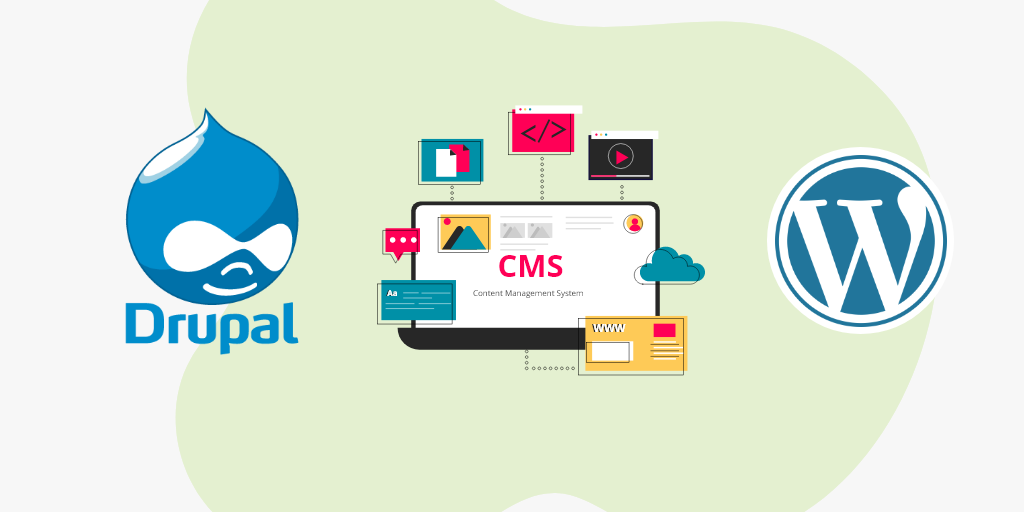Shopify vs Wix – An Ecommerce Comparison for 2021

Shopify vs Wix? Sounds like a weird comparison, right?
If you said yes to that, we won’t blame you. On one side, you have Shopify, a proverbial giant in the eCommerce platform market. On the other, you have the newcomer Wix. From the outset, it doesn’t look like a fair competition.
While Wix is an underdog, it has proven its metal in the CMS market with it’s highly-efficient website builder.
Building upon that, it has now penetrated into the eCommerce market with Wix eCommerce.
Considering all of this, we feel that comparing Shopify with Wix is fair.
This post provides a short comparison between the two platforms on the basis of eight different factors.
So, without stalling any further, let’s begin.
Factor One: Shopify vs Wix Usability
Let’s see how the two platforms stack up against one another in terms of ease of use.
Shopify:
If you’re looking to create an online store without going into too many technical hassles, then Shopify is for you. Now, there is a learning curve with using the platform but overall, Shopify’s user experience is designed to get you started quickly and easily.
If you ever get into a problem while using Shopify, then don’t fret. The platform has a vast collection of neatly-arranged tutorials, blog articles, and videos that can help you out when you need it most.
To get the best out of your Shopify store, you’ll need to devote a couple of hours to the setup process, or you can even hire Shopify development professionals for this task. Again, it has a learning curve, but only to the point of getting acquainted with the platform.
Wix:
Wix differentiates its offerings by claiming to be the most user-friendly platform out there. While every eCommerce platform provider makes the claim, Wix actually delivers on it. It is, by far, one of the easiest website builders out there.
The backend interface is easy to get acquainted with and, if you feel stuck, there are plenty of helpful resources that can help keep you on track. Wix’s tutorials and videos are user-friendly and can get you up and running quickly and efficiently.
From a traditional standpoint, its worth clearing that Wix is a website builder with an eCommerce module. It’s not a full-fledged eCommerce store for now. But seeing the way they utilize AI tools like Wix ADI, that make store creation faster by creating ready-made templates, we can say that its eCommerce module has some serious potential.
Winner: Tie
While Wix is a lot easier to use, its stores are very basic compared to Shopify. Shopify has a steeper learning curve, but the eCommerce store created is highly functional and modular.
Factor Two: Shopify vs Wix Themes and Customization
Shopify:
A platform dedicated solely to eCommerce, Shopify has a vast collection of aesthetically designed themes that can help you create a sleek and modern eCommerce store.
If we compare Shopify vs WooCommerce, then the former’s themes are overshadowed. But the 60+ themes that Shopify themes does provide; all of them are very well-designed and functional.
When it comes to customizations, the platform does not disappoint. All of Shopify’s themes are highly customizable. This means that if you want to create a branded store, there are no inhibitions.
Shopify makes customization possible with the help of its live-editor. It lets you customize the HTML and CSS of your website according to your preferences.
The only drawback to Shopify themes is that it’s not free. You have to pay a one-time fee that’s anywhere between $140-$180. There are only few free themes available.
Wix:
Wix has exactly the same number of themes present as Shopify. They are well-designed, modern, and have all the functionalities required for an eCommerce store.
You can create customized, brand-facing stores with relative ease using Wix. But while it does allow you to edit your HTML and CSS properly, you’re limited in your customization capabilities if you compare it to Shopify.
Winner: Shopify
Even though the number of themes is the same on both the platforms, Shopify’s themes are a lot more functional and eCommerce friendly than Wix.
Factor 3: Shopify vs Wix Payment Gateways Support
The following illustration is a run-down of how supportive both platforms are when it comes payment gateway support.
| Shopify | Wix | |
| Paypal | Supported | Supported |
| Credit Card payments | No Credit Card transaction fees Transaction fees are incurred for other payment gateways. | Supports multiple payment gateways. No transaction fees. |
| POS | Shopify POS | Square POS Payments . |
| Offline payments | Supported | Supported |
| Apple Pay / Google Pay | Supported | Not Supported |
| Other channels | Instagram, Facebook, and other payment channels. | Supports only Instagram and Facebook payments. |
| Multiple currencies | Possible to do through unsupported HTML. | Not Supported |
Winner: Shopify is the clear winner when it comes to payments. It’s a well-rounded eCommerce platform that allows you to gain revenues through multiple payment gateways.
One tiny snag with Shopify is that, when compared with other major platforms, Shopify payments is tad bit expensive. While the percentage might not look much to you, it builds up to a significant amount if you’re earning more.
Factor Four: Shopify vs Wix User Management
Shopify:
We found Shopify’s user management functionalities to our liking. When it comes to registrations, you can either set a mandatory registration (users must sign up before they checkout) or an optional one.
If you’ve migrated to Shopify from a different platform, and can’t retrieve the user-data, Shopify allows you to manually add them through the CSV import function. Also, you can organize them through tags.
Wix:
Wix’s user management is very basic in comparison to Shopify. There is a member area where you can manage your users, but that’s about it. It doesn’t have that much going on for it in terms of user management.
Winner: Shopify
Compared to Wix, Shopify has a more granular and efficient user-management system in place.
Factor Five: Tax Management
Shopify:
Tax management is pretty efficient on Shopify. Within your product offerings, you can choose to exclude or include taxes. In addition, Shopify also provides support for automatically calculating tax rates for different countries.
Wix:
Similar to Shopify, Wix also provides support for enabling or disabling taxes within the product offerings. Also, it supports tax calculation for regular as well as special products. The latter, however, can only be accessed through the Business Unlimited plan.
Winner: Tie
Both Wix and Shopify are very good in their tax calculation, and there isn’t much that differentiates the two. Because of this, it’s a tie.
Factor Six: Multi-Language Capabilities
Shopify:
Multilanguage capabilities is where Shopify doesn’t perform that well. Simply put, it’s not possible to create a multi-language website natively on Shopify. Going beyond native, you can purchase a multilingual theme and implement it on your store.
While some users might prefer to purchase a multilingual theme, others might not. The only solution present on Shopify is to upgrade to Shopify Plus which, among other features, gives you three languages. However, it will take you back $2000, which is a pretty hefty amount.
Wix:
On Wix, you have the option of creating a multilingual site. The problem with that feature is that it’s not SEO friendly. For example, if you have an English-Japanese store, the URL displayed in a Japanese search engine won’t be in Japanese.
You might think that having this feature is better than not having it all, but we wouldn’t recommend it.
Winner: None
Both options are risk-prone, even with the workarounds present.
Factor Seven: Search Engine Optimization (SEO)
Both the platforms are pretty good when it comes to SEO. You can optimize every aspect of your website for search engine visibility. This includes blog content, product descriptions, heading tags, redirect tags, and alt-texts.
To add more value to their SEO functionalities, both platforms fully support Google Analytics, and Facebook Pixel code integration into the store. You can track your eCommerce conversion rates with relative ease using the platform.
Also Read: Optimizing Conversion Rate On Your eCommerce Store
One problem that we’d like to point out is that both the platforms have lax URL settings. While you can create highly efficient sitemaps, the URL extensions, in particular, aren’t SEO friendly. They automatically add unwanted extensions like “/collections” and “/product-page”.
Winner: Wix and Shopify
Both are genuinely good platforms when it comes to SEO. However, both handle their URLs poorly.
Round Eight: Live Chat Support
Shopify:
Being a closed source, SaaS company, Shopify offers 24/7 live chat, email, and phone support. This means that whenever you run into an issue in your store, you can get immediate support.
Besides live support, you can also read up on Shopify’s blog articles, documentation, or how-to videos. If you have a pressing question, you can even talk to the Shopify community and get support from there.
Wix:
When it comes to support, Wix doesn’t disappoint. It has an extensive blog that details everything from creating your first Wix store, to marketing it properly.
We mentioned blogs first because Wix’s live-chat support is only limited to their business hours. Unless you’re contacting them during those hours, you would have to wait an entire business day to get a reply from them.
The workaround to that is posting the question on Wix community forums. While it’s not dedicated, the huge Wix community will try to provide you extensive support on your query.
Winner: Shopify.
It’s a close call, and the only reason Shopify won in this category is because it provides 24/7 support. Other than that, both Wix and Shopify are the same.
Which One is Best for Me?
It depends on what you want to achieve with your website.
Before you go about selecting an eCommerce platform, you need to audit your requirements. From financial limitations, to marketing, accounting, and more. When you have a clear idea of what you want with your platform, only then should you go out and buy it.
Thanks for reading!
Want to get your eCommerce store developed? Contact our eCommerce development services to start today!
Read Also




